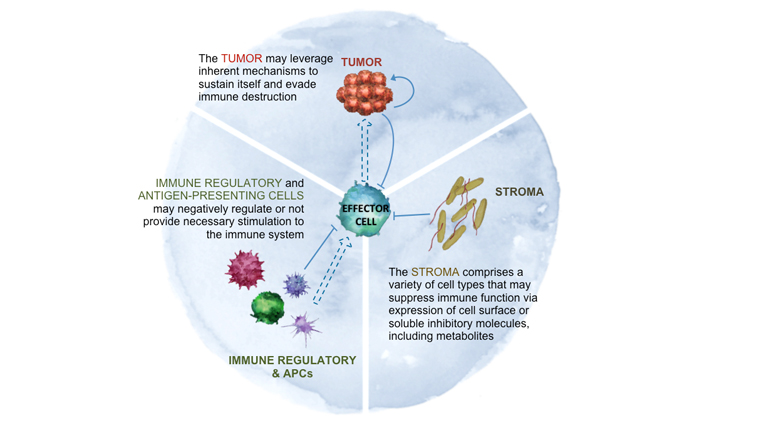“To address these areas of immune suppression, we are investigating multiple mechanisms,” says Carl Decicco, Ph.D., head of Discovery, Bristol Myers Squibb. “We know that most tumors use more than one immune suppression mechanism or develop new mechanisms over the course of the disease, sometimes in response to therapy, and so our focus is also on how therapies might be combined as treatments for cancer become more personalized.”
The immune system comprises two arms that work together to protect the body: the innate and adaptive immune systems. Existing immunotherapies are mostly focused on harnessing the adaptive immune system to detect and destroy tumors. The adaptive immune system is complex and highly specific, able to recognize individual antigens and create memory of those antigens to rapidly eliminate repeat infections. The innate immune system is the body’s first line of defense against pathogens and responds by stimulating an immediate protective response. The innate immune system mediates presentation of tumor antigens, priming an activation of tumor-specific immune cells that enable optimal development of adaptive anti-tumor immunity.
In August 2017, Bristol Myers Squibb announced the acquisition of IFM Therapeutics, giving the company rights to two preclinical programs that strengthen and accelerate the company’s efforts in investigating how to leverage innate immunity.
"Through strategic business development, we are bringing external innovation together with our R&D capabilities and broad oncology portfolio, with a goal of improving long-term survival for more patients," says Paul Biondi, head of Business Development, Bristol Myers Squibb. "We now have the potential for a more robust approach to targeting activators of innate immunity, as well as more options for investigating potentially novel combinations.”




